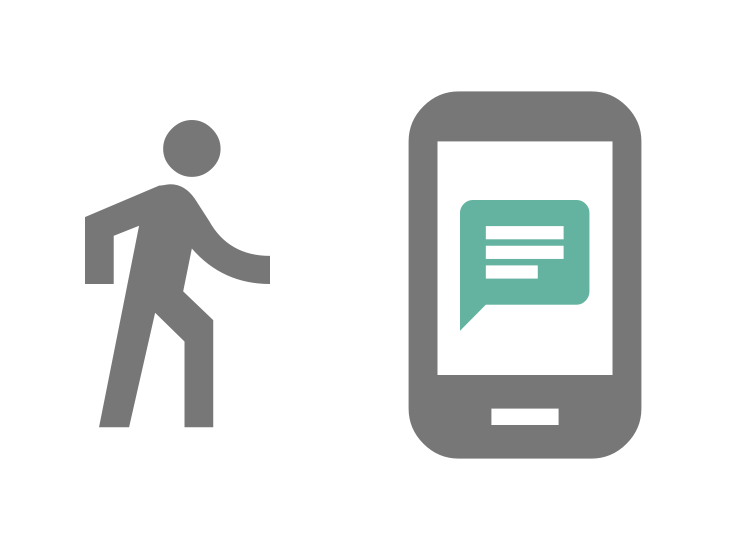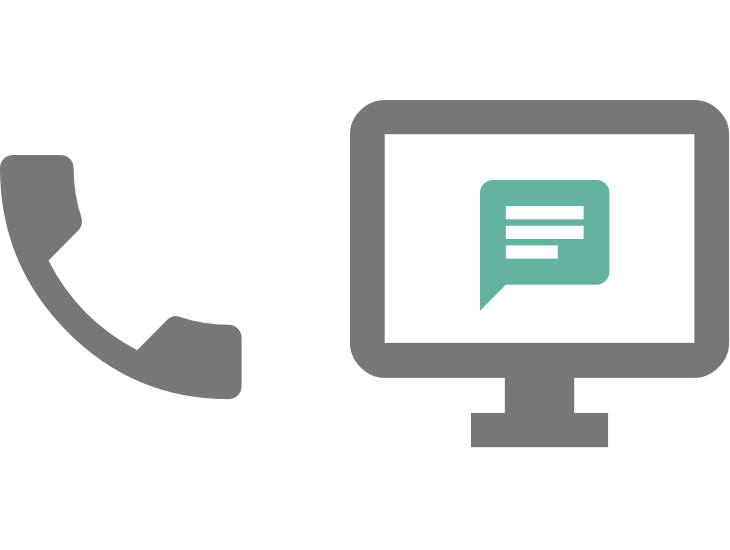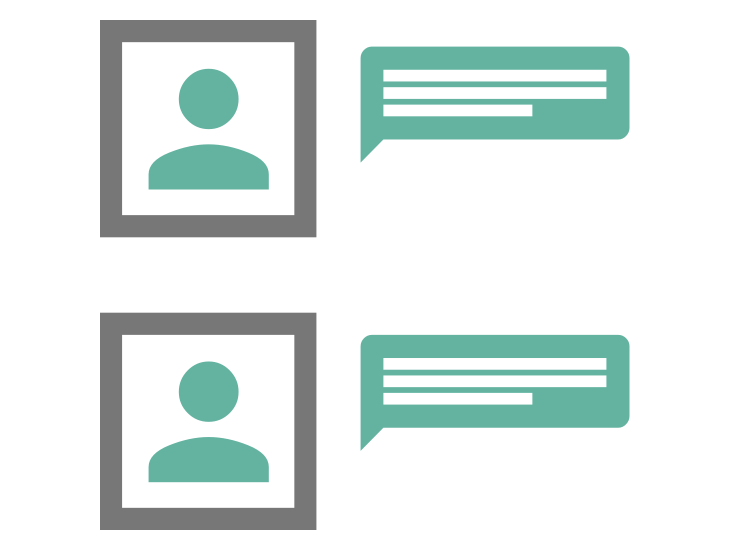GDLive Newsfeed
We check in with people at each stage of the cash transfer process to see how things are going. Take a look at some of their stories as they appear here in real-time.
Learn more about how recipients opt in to share their stories.

access_time
almost 2 years ago
Chengo
received a $10 initial payment.
"I run a business by buying and selling livestock. My business has been on a downward spiral since the commencement of the drought. Providing essential needs (food, school fees, and clothing) for my family (wife and 3 children) has proven very difficult with a reduced income. The increase in prices affects my wife's business dealing with selling chapati, hence making a little profit from it. Together with my wife, we could not save a lot of money. That way, we can use it to pay school fees for our children. When I received my first transfer, I spent Kenya Shillings 700 buying stationery for my daughter, who is to join Secondary Education early next month. Besides buying stationery, I spent the remaining KES 500 to buy two hens for rearing and for future investment. In times of need, can sell some and use the money to settle my most pressing needs. "
View Chengo's
profile

access_time
almost 2 years ago
Kabibi
received a $10 initial payment.
"I am a widow and I fully depend on my son to provide for the family (me, daughter-in-law, 4 grandchildren) needs (food and clothing). He works in Mombasa as a casual laborer on construction sites. Due to the temporary nature of his job, he does not work daily, and the pay is very little (450 per day) to cater to all our family's needs. My daughter-in-law runs a kiosk business and from that, she can help in clearing a portion of the bills. My son has selflessly shouldered the burden of taking care of our extensive family during this hard time when prices of commodities are very high. Therefore, when I received my first transfer of KES 1200, I spent KES 900 On buying 2 kgs of beans, 6 packets of maize flour, and 1 kg of sugar. Buying the food was to ease the burden that my son was going through in providing for the family. Besides buying the food, I spent the remaining KES 300 to buy some clothes since all that I had torn and worn out."
View Kabibi's
profile

access_time
almost 2 years ago
Albert
received a $26 second payment.
"I used KES 2000 of the second transfer to restock my tailoring business. It has been my main source of income but due to the current famine which led to an increase in food prices, the business flopped and in most cases, I could on sew but had no fabric materials to sew. I am glad I have seen great improvements since then. KES 1000 I spent on some foodstuffs that can push my family for a while."
View Albert's
profile

access_time
2 years ago
Khalid
received a $476 initial payment.
"My semi-permanent house was under construction. So the moment I received the transfer I used the money to complete the house which could have taken me more than six months to complete.
I also used the money to supply water from my neighbor to my newly completed house the thing I never thought it will happen, I just got this noble idea the moment I received the money from give directly I also went ahead and bought a 3000 thousand liters tank. Now I'm selling water to my neighbours at affordable prices."
View Khalid's
profile

access_time
2 years ago
Branis
received a $476 initial payment.
"With the first KES 16000 I used in building a chicken coop.I had been doing small scale but because of few eggs I could earn less money. With this plan of building a chicken coop will be able to create a better space and more chicken hence more income. I also spent KES 6000 in purchasing chicken for starting up the business. The outcome of selling the egss will allow me sort house bills.With KES 9500 I used in buying three sacs of maize which will sustain us upto the next harvest.I also spent KES 6000 in clearing school fees arrears for my two nieces I stay with.I had also thou2of buying a good breed of sheep and since the prices were abit hight I saved KES 15,000 as I wait for prices to drop so that I can purchase for domestic purposes."
View Branis's
profile

access_time
2 years ago
Karisa
received a $10 initial payment.
"I am married with two children and the sole provider of the family. I also work as a motorcyclist. Before, the job was easy, but after the hiked fuel prices, it has been very hard and I find myself working for the fuel. Thereby lacking funds to take home. For 2 days, we had been forced to sleep hungry as we had run out of food in the household. I tried asking for help from relatives but it was all in vain. so, when I got the funds from give directly, I use it all to purchase some food for us"
View Karisa's
profile

access_time
2 years ago
Katsele
received a $26 second payment.
"I have a six-year daughter who has not enrolled in school because we could not afford both the enrollment fees and the other school requirement. We burn charcoal for sale but it is dominated by most people in our village and this has lowered both their demand and prices. We have eight children and providing for them with limited income is a real challenge thus we decided to let the girl stay at home as we figured out how to raise her school fees. Therefore, when I received the second transfer I used KES to purchase her school uniform while KES 1000 I saved for her school fees. I am glad and proud everything is in place for her school. The remaining 1000 KES I spent on some of the foodstuffs for my family."
View Katsele's
profile

access_time
2 years ago
Ibrahim
received a $26 second payment.
"Offering financial support to the community living in abject poverty is what GiveDirectly does so well. It does not discriminate against anyone based on their economic and religious background. As a result, many beneficiaries have been able to benefit from its program hence they can easily buy food from the transfer. Consequently, the majority of the beneficiaries can comfortably support their families irrespective of the inflation in food prices. However, there is nothing that GiveDirectly does not do well."
View Ibrahim's
profile

access_time
2 years ago
Fautma
received a $26 second payment.
"Basically, GiveDirectly as an NGO is very unique in its ways of operations. It does so well in using the model of giving direct cash transfers as a way of supporting us, the neediest people in the society. The transfers are very helpful to us, especially during these hard economic times when there are no sources of income, food as well as fuel prices are extremely high. As a result of the transfer, we nowadays find it easy to buy food despite having been affected by consecutive two drought seasons. So far, I have not yet witnessed what GiveDirectly does not do well."
View Fautma's
profile

access_time
2 years ago
Bahati
received a $10 initial payment.
"I rely on splitting logs and making charcoal to provide for the household needs. It is very challenging to raise enough money to meet each necessity due to the low income I earn from the activity. Before I get a customer to buy a sack of charcoal worth KES 500, I will have struggled the entire week. With the rising commodity prices, the money earned is not enough to fully cater to our needs. This is the reason I heavily depend on my two sons for provision. One owns a small fruit selling business while the other survives on casual tasks, as long as he earns something at the end of the day. To reduce their responsibility burden, I decided to rear chickens, let them multiply, and sell the produce later to obtain cash. So when I received the transfer, I used KES 600 to purchase two hens to add to the existing ones. More hens mean a bigger flock which translates to a wider income stream. I used the rest of the cash, KES 600, to buy food. I am glad that the dependence on my children for food has gradually decreased following the transfer."
View Bahati's
profile





